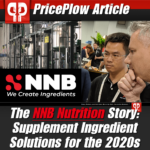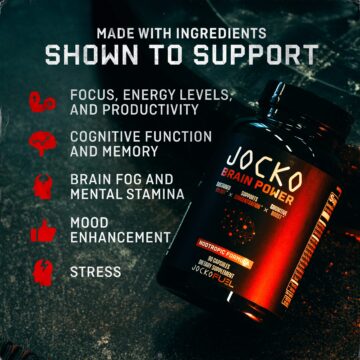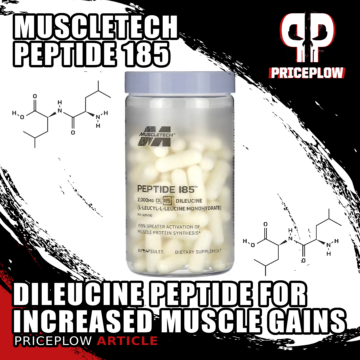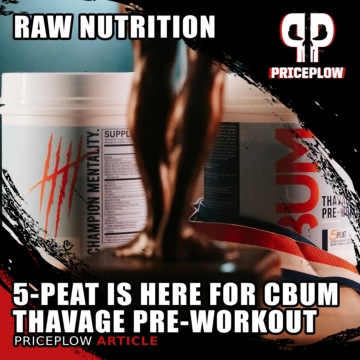Welcome to the PricePlow Blog
PricePlow is the premier thought leader in the dietary supplement industry. We cover the science of supplements and help customers save.
Listen to the PricePlow Podcast, learn from our supplement guides, or read the latest news below. You can also save money with the PricePlow site and our supplement deals page.
GHOST Partners with Sydney Cummings to Unveil Summertime Punch Flavors

Summertime is just about here, and that means it’s time for some deliciously fruity collaborations from GHOST!
For 2024, they’ve partnered with Sydney Cummings, the Guinness Record Holder for most fitness videos! This is the perfect collaboration, since both parties are kings (and queens) of content in their respective fields.
Sydney Cummings Summertime Punch[…]Continue Reading →
WICK Mode: Jacked Factory’s Cognizin Pre-Workout Collab with John Wick!

By now, the name John Wick has become synonymous with total, all-encompassing badassery. For the past decade, fans of the character have fantasized about how amazing life could be if we possessed even a fraction of Wick’s strength, agility, cunning, and sheer violence of action.
Well now, thanks to Jacked Factory, you can find […]
Continue Reading →
GHOST Hydration RTD Blue Raspberry Sour Patch Kid Collab!
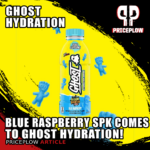
For those that weren’t paying attention, GHOST moved through April at a blistering speed, releasing 4 new SKUs:
GHOST Protein Cereal GHOST Joint GHOST Greens Matcha Latte GHOST Energy EDC Electric LimeadeTwo new products, and two new flavors. From the looks of it, May isn’t going to be any different, with their newest release […]
Continue Reading →
Formulator’s Corner #11: NNB FlowTech Series Non-Stim Pre-Workout
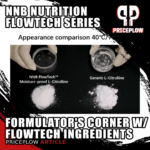
In the world of supplements, proving efficacy isn’t the only obstacle. There are significant logistical hurdles to overcome before a supplement can be sold at scale.
Shelf life is a big one. If your supplement can’t maintain its efficacy and usability, even while being warehoused for long periods or forgotten in the customer’s kitchen pantry, […]
Continue Reading →
ETAS®: Boost Health by Boosting Heat Shock Protein Production

If you’ve ever spent too much time in the sun on a hot summer day, then you know that heat exposure can be a major stressor.
Unsurprisingly, the human body has evolved mechanisms to deal with heat stress. And as usual, if we take the time to understand that stress response and leverage it intelligently, […]
Continue Reading →
Chris Gronkowski: Building a Better Shaker Cup at Ice Shaker | Episode #136

For our final installment of Podcasts held at the 2024 Vitamin Shoppe Brand Summit, we hosted Chris Gronkowski of Ice Shaker for a fun 20 minute discussion to get the story on how he started the growing business, which was first introduced to the world on the hit TV show, Shark Tank.
From the[…]Continue Reading →
Universal Animal Omega: The Essential Fatty Acid Powerhouse Pak (2024 Update)
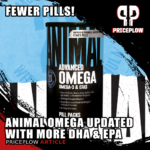
Animal Omega has been updated, now with fewer softgels, just like the recent updates to Animal Cuts and Animal Pak!
When it comes to our diets, we are far too often concerned about calories and total fat, while ignoring the importance of the quality of fat we eat. Today, we focus on Animal Omega[…]
Continue Reading →
MuscleTech Mass Tech Lean Muscle Mass Gainer at Walmart
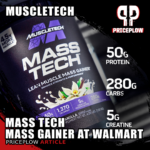
There are hundreds – perhaps even thousands – of brands in the supplement industry. Most of them have a catalog of white-labeled products that aren’t very dissimilar from everything else on the market.
The story at MuscleTech is different. They go above and beyond to deliver not just incredible flavors, but they also pioneer […]
Continue Reading →

